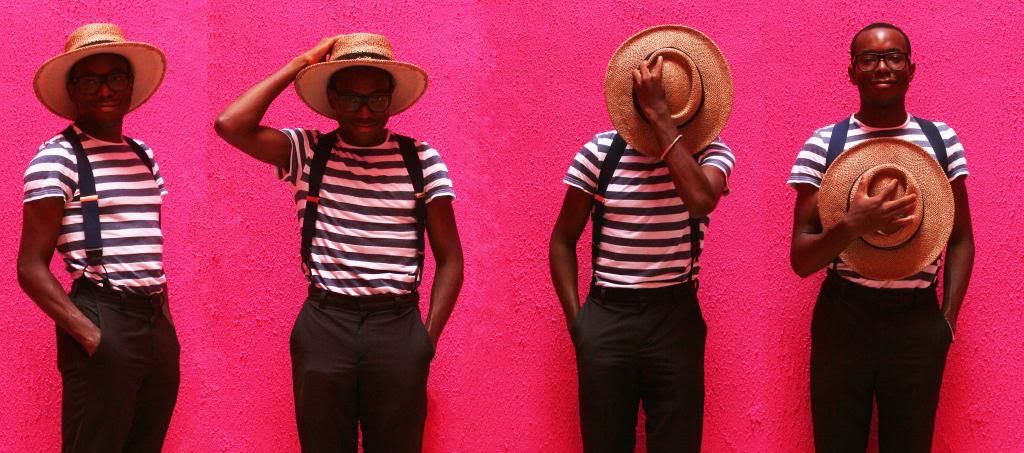The day music goddess Kah-Lo defended her one and only Afam.
Afam
13:56:00

There's a manic pixie dream girl I'm in love with. Her name is Kah-lo. She's the sort of person that makes you believe in magic and fairies and unicorns. Her hair is green, her skin is brown, and her eyes twinkle with mischief. She is one of the few people on this planet that drunk me and sober me love with equal amounts of fervor.
Now, I must backtrack here, because some of you are a little bit cross with me. You're thinking, "Afam, the next blog you promised was the one about your kidnapping and valiant escape. What is this piece of nonsense."
To this, I have the following to say.
I will not speak of, or casually refer to that traumatic incident until my therapists and I have dealt with it completely. As most of you know, I took a break from my exceedingly successful career as a journalist to become a full-time Demon Slayer. And just today, or was it yesterday, I realized that I'd given my demons such a thorough thrashing that I could return to my journalism career. However, we must never forget where that career started: the blog.
In any case, Kah-Lo is a wondrous creation. She's a lyricist without compare, a songstress with an eye for trouble, and a hard worker. Now, I must say, I don't know her very well. On the few occasions that I have met her, I have never once behaved well. I would apologize for this, but love is love. With my consistent declarations of casual affection, I have weaseled my way into her heart. Just the other day, she jumped on twitter to defend my honor.
It all started when I tweeted the following...
And then that led to this...
At the time I didn't really want to discuss my tweet further. In as much as twitter is a source of joy, it's also very often a source of stress. I find some debates stressful, and debating with Timi, who I quite like, is exhausting. It's far better to do peaceful constructive things like sleep. So I followed that tweet with this.
Fight Club is an extraordinary film that came out 20 years ago and like all good films, its relevance exceeds its date of release. Timi had the following to say about my tweet.
When I saw his reply, I sighed very heavily and thanked the good Lord for growth. You see, when I was younger, I'd have used this as an opportunity to further my achievements in pettiness. I'd have said something like, I admire your ability to treat the mundane as serious. But, being an adult, I did no such thing. And that was when Kahlo, my green-haired, Grammy-nominated, music-making, angelic fiend, came to my rescue.
Obviously, Timi wasn't going to let this slide.

But Kah-lo, the defender of my musical dreams and sanctified ears struck him again.

Timi refused to stay down. He was hell-bent on defending his position. If Kah-Lo was a lesser being it'd have worked, but Kah-lo isn't a human being, she's a spiritual being, I knew it the first time she said, "It's time to make the club go up, it's time to shut the club down." My girl came through with a sledgehammer of a retort.
And before I could dance a merry dance because Kah-Lo had put down my wayward but ultimately lovely assailant she followed it with this. A Ginger sized 1, 2 punch. An "open close faster faster" if I ever saw one.

I danced a merry jig when I saw that one. When the agents of Jesus fight for you, all but the monumentally troublesome dare fight back. Timi tried to steal a win but he was ultimately unsuccessful.

And then, Kah-Lo made me love her forever and ever.

I love it so much I'm going to put it on a t-shirt and give it to myself for Christmas. After that, I'll put it on my underwear so anyone that's lucky enough to see me in the semi-nude (typically my parents) knows the way I swing and lastly... If you do not already know who Kah-Lo is you must educate yourself. She has a brilliant single that's perfect for Detty December (The Nigerian way of saying in December we party to the death). And with no further ado, I present to you, the work that my Knight in Shining Armour has made:






















